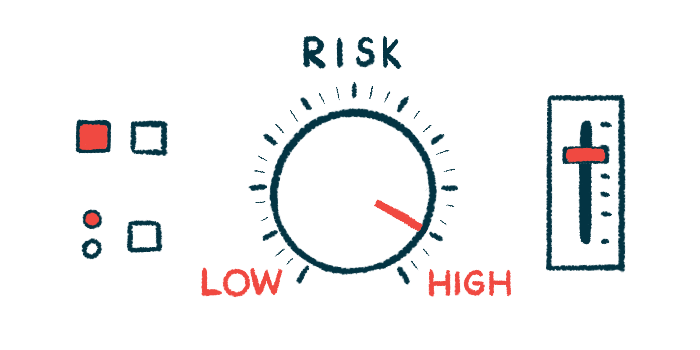People with diabetes or prediabetes found at increased COPD risk: Study
UK study also finds higher mortality rate in COPD patients with diabetes
Written by |

People with diabetes or prediabetes are at an increased risk of developing chronic obstructive pulmonary disease (COPD), according to a recent study conducted in the U.K.
A longer period of living with diabetes or a history of smoking further increases those odds. Among people who develop COPD, those who also have a diabetic condition are at an increased mortality risk, researchers note.
“Further studies are warranted to clarify the underlying mechanisms and to determine the optimal diabetes control measures that might reduce the risk of COPD in the general population,” they wrote.
The study, “Associations of diabetes, prediabetes and diabetes duration with the risk of chronic obstructive pulmonary disease: A prospective UK Biobank study,” was published in Diabetes, Obesity and Metabolism.
Previous research indicates potential link between diabetes and COPD
Diabetes is a disorder characterized by uncontrolled high blood sugar and inflammation. A handful of previous studies have suggested a potential link between diabetes and COPD, a chronic inflammatory lung disease.
COPD patients reportedly have a higher prevalence of diabetes than the general population. Diabetes in these patients has been linked to worse outcomes, including longer hospital stays, and a higher risk of severe disease exacerbations.
Yet, whether a diabetic is at increased risk of developing COPD is not well-established, although some studies have suggested that this is the case.
A potential association between prediabetes and COPD is also unclear. Prediabetes is a modifiable condition where blood sugar levels are elevated, but are not high enough to be considered diabetes.
Both diabetes and prediabetes have been linked to negative effects on lung function.
In the study, researchers examined the potential relationship between COPD and diabetes or prediabetes using data from the U.K. BioBank, a database containing detailed long-term health information from about half a million adults living in the U.K.
Diabetes control may help to maintain good lung function and reduce the risk of COPD.
COPD risk is higher the longer a person has been living with diabetes
The analysis included 452,680 people who did not have existing COPD or impaired lung function at their initial health assessment (baseline). Participants, 54.8% of whom were women, had a mean age of 56.5 years.
Over a median follow-up time of 12.3 years, 12,595 people were diagnosed with COPD. Across all study participants, 11.8% had prediabetes and 6% had diabetes at their baseline evaluation.
People with diabetes or prediabetes were more likely to be elderly and smokers, as well as to have lower socioeconomic status, a higher body mass index, elevated blood sugar, and a family history of diabetes.
Compared with people without diabetes, people with prediabetes were at an 18% higher risk of developing COPD, while people with diabetes were at a 35% higher risk.
The odds of developing COPD were higher the longer a person had been living with diabetes.
For example, people who had been living with diabetes for seven or more years were at about a 23% higher risk of COPD than those who had diabetes for less than a year. That relationship was found to be even stronger among people with lower lung function.
Moreover, the odds of COPD among those with diabetes was increased when a person was a smoker (36% higher risk) compared with nonsmoking diabetics (26% higher risk). Cigarette smoking is the largest known risk factor for COPD.
Additional analyses revealed that the associations between diabetes/prediabetes and COPD were stronger among men, smokers, people younger than 60, those with below-average lung function, and people of higher socioeconomic status.
Among the 12,595 people with a COPD diagnosis, 3,167 died over a median follow-up of 3.8 years since their diagnosis.
COPD patients with diabetes, prediabetes had higher mortality risk
COPD patients with prediabetes were found to be at a 9% higher risk of death by any cause than COPD patients without diabetes, and COPD patients with diabetes were at a 21% higher mortality risk.
Patients living with diabetes for seven years or more had a 46% higher risk of overall death than those living with the condition for less than a year.
Death specifically due to COPD was not associated with diabetes or prediabetes.
Taken together, the data “imply that diabetes status and diabetes duration may play a role in the development and progression of COPD,” the scientists wrote.
They noted that several mechanisms might be at play to contribute to the observed relationship, including inflammation, direct effects of blood sugar, and elevated susceptibility to bacterial infections.
“Diabetes control may help to maintain good lung function and reduce the risk of COPD,” the researchers wrote. Still, whether that is the case “needs to be confirmed in future clinical trials.”







